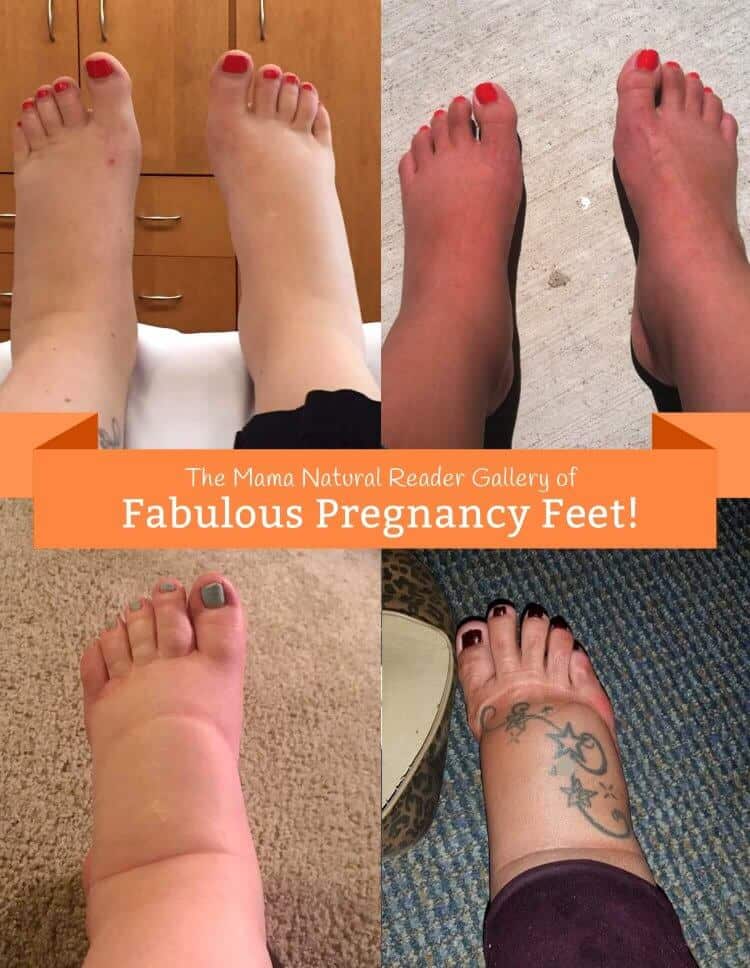Why Do Feet Swell During Pregnancy? A Parent’s Guide to Edema
Hey there, amazing parent-to-be! Are you noticing that putting on your favorite pair of shoes is becoming a bit of a struggle, or that your feet have taken on a new, rather puffy appearance? Welcome to the world of pregnancy-induced feet swelling, also known as edema! But don’t you worry, because this guide is crafted to help you understand and manage this all-too-common symptom of pregnancy.
Understanding the Swell: What Causes Edema in Pregnancy?
During pregnancy, your miraculous body undergoes numerous changes. One of these is an increase in fluid retention. Why does this happen? Well, your growing uterus puts pressure on the blood vessels in your pelvis, which slows down the return of blood to your heart. Plus, the extra fluid is essential to soften the body, which enables it to expand as the baby develops. Also, your pregnancy hormones are in full swing, influencing the retention of fluids and contributing to those swollen tootsies!
Tips for Managing Swelling Feet in Pregnancy
Now, let’s talk solutions! While swelling might feel like an inevitable part of pregnancy, there are some handy tips and tricks you can employ to reduce discomfort and keep those puffy feet at bay:
- Put Your Feet Up: Whenever you can, take a break and elevate your legs higher than your heart. It’s not just relaxing; it also helps your circulation!
- Hydration Is Key: It might seem counterintuitive, but drinking lots of water actually helps to flush out the excess fluids in your body. Aim for at least 8-10 glasses a day.
- Stay Cool: Heat can worsen swelling, so try to keep your environment cool and comfortable.
- Keep Moving: Moderate exercise, such as walking or swimming, can help promote circulation and decrease swelling.
When To Be Concerned About Swollen Feet During Pregnancy
While some swelling is normal, there are times when it could signify something more serious. If you experience sudden or severe swelling in your hands and face, it could be a sign of preeclampsia, which is a condition that requires immediate medical attention. Contact your healthcare provider if you notice any of these symptoms.
With all these tips and insights, hopefully, your journey through pregnancy will be a little more comfortable. Remember, every pregnancy is unique, so always consult your healthcare provider about any concerns you have. Stay tuned for more in-depth strategies to cope with swelling and other pregnancy-related topics right here!
Your journey as an expectant parent is filled with little challenges and lots of wonders. Understanding the ins and outs of feet swelling during pregnancy is just one way you’re preparing to welcome your bundle of joy into the world. So put up those feet, sip on some water, and rest assured that you’re doing an incredible job!

5 Must-Know Facts for Expecting Parents About Feet Swelling and Pregnancy
1. Swelling Can Occur at Any Stage
Feet swelling can happen at any point during your pregnancy, but it’s more common in the second and third trimesters. As your beautiful baby grows, the pressure increases, and so does the likelihood of swelling. Being mindful of how your body changes will help you adapt comfortably to each stage of pregnancy.
2. The Importance of Proper Footwear
Goodbye, high heels! Comfort should be your top priority when it comes to choosing footwear during this special time. Opt for shoes with proper support and a snug fit—not too tight, though! Swelling may make your usual shoe size a bit smaller, so consider getting footwear that gives you some wiggle room.
3. Dietary Adjustments Can Help
Balancing your diet is always important, but during pregnancy, it can help manage edema too. Limiting sodium intake reduces the chances of retaining water, so keep an eye on your salt consumption. Also, foods rich in potassium, such as bananas and spinach, can help balance the fluid levels in your body.
4. Monitor Your Swelling Patterns
It’s smart to keep an eye on how your swelling progresses throughout the day. If you notice it getting worse as the day goes on, or if it doesn’t improve after a night’s rest, mention it to your doctor. Maintaining a swelling diary can be very useful for your healthcare team to monitor your situation closely.
5. Differentiate Between Normal Swelling and Warning Signs
Feet swelling is often normal, but if you notice it becoming painful, accompanied by redness, or if only one foot is swelling significantly, it could be a sign of a blood clot. Additionally, sudden swelling in your face, around your eyes, or excessive puffiness in your hands could signal high blood pressure or preeclampsia, as mentioned earlier. It’s crucial to be vigilant and report such changes to your healthcare provider immediately.
Managing Comfort and Health: The Balance in Pregnancy
Alongside the practical tips for managing swelling, it’s essential to take care of your emotional well-being. Pregnancy is a journey that encompasses both joyous moments and discomforts like swollen feet. Practice self-care, be patient with your body’s changes, and lean on your support system, be it your partner, family, or friends. Your health and comfort are paramount, leading to a smoother pregnancy and the healthy development of your little one.
Remember, pregnancy is a time of growth and transformation. Being prepared, informed, and proactive about potential changes such as feet swelling will make the experience all the more rewarding. Armed with knowledge and support, you’re well on your way to becoming a super parent ready for the joys and challenges that lie ahead. Keep those feet happy, and you’ll be stepping into parenthood with confidence and grace!
For more great articles please see here. For more information see here
Disclaimer
The articles available via our website provide general information only and we strongly urge readers to exercise caution and conduct their own thorough research and fact-checking. The information presented should not be taken as absolute truth, and, to the maximum extent permitted by law, we will not be held liable for any inaccuracies or errors in the content. It is essential for individuals to independently verify and validate the information before making any decisions or taking any actions based on the articles.




